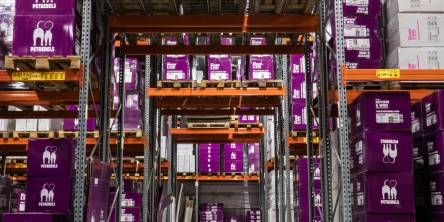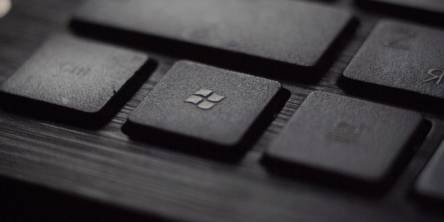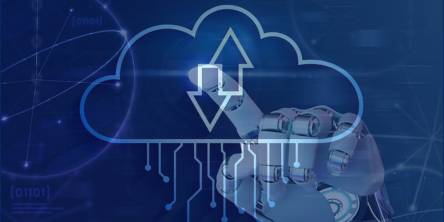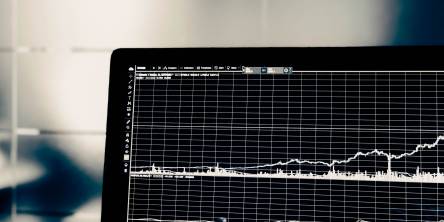Best Hospitals Asset Tracking Techniques in 2023
Running a hospital is decidedly among the most complex endeavors on Earth. And among the many, many tasks that make hospitals notoriously difficult to operate and run efficiently and successfully is asset tracking. But wait, what exactly is asset tracking, especially for a hospital? Simply put, it is the process of monitoring the location and status of physical assets. This can be done using a variety of technologies and techniques, but before we get to that, let us take a minute to talk about asset tracking in the context of hospitals.
You would agree that in a fast-paced and dynamic environment like a hospital, efficient asset tracking is crucial to ensure the smooth functioning of operations and the delivery of quality patient care. Hospitals rely on a wide range of assets that need to be accurately monitored, located, and maintained, from medical equipment and devices to supplies and medications. As you might be aware, hospitals are brimming with assets — from medical carts to medications and MRI machines — and even losing track of these assets can have severe consequences.
This is where asset tracking comes in, i.e., it is important for hospitals because it can help such facilities save time and costs, improve operational efficiency, and deliver better patient care. However, managing these assets can be a daunting task without robust tracking techniques in place.
With this blog, I'll explore the best asset-tracking techniques hospitals can implement to optimize resource utilization, streamline workflows, and enhance patient outcomes. Whether it's reducing equipment downtime, improving inventory management, or enhancing staff productivity, effective asset tracking can significantly impact a healthcare facility's overall efficiency and effectiveness.
Some of the most Important Asset-Tracking Techniques for Hospitals:
- Radio Frequency Identification (RFID): RFID uses radio waves to identify and track assets equipped with RFID tags. So, in hospitals, RFID technology is increasingly used for asset tracking. You see, RFID tags can be attached to equipment, hospital badges, and medication carts to help the administration monitor their location and movement. Hospitals can benefit from RFID by quickly locating assets, improving inventory management, enhancing workflow efficiency, and reducing equipment loss. Another reason why RFID is a popular asset-tracking technique in hospitals is because it is very accurate and can be used to track objects in real-time.
- Barcodes: Another popular asset tracking technique is a series of black and white bars representing data. Barcode readers are then used to scan barcodes and read the data. Hospitals can use barcode labels on assets and scan the barcodes with handheld scanners or mobile devices, thus enabling quick and easy asset tracking. Barcoding systems are also cost-effective asset-tracking solutions for hospitals, allowing them to streamline workflow processes, manage inventory effectively, and so much more.
- Bluetooth Low Energy (BLE) beacons are tiny devices that transmit signals using Bluetooth technology and can be easily placed across a hospital to help with asset tracking. It must be noted that BLE beacons are especially useful in indoor environments where GPS signals may be limited. Though they are a relatively new asset-tracking technology, a growing number of hospitals are now attaching BLE beacons to wheelchairs, equipment, and other assets to not only track their movement but also to help improve asset visibility.
- Internet of Things (IoT): IoT, i.e., a network of objects connected to the internet with the ability to gather and exchange data, has also played a key role in asset tracking. Speaking specifically in the context of hospitals, though, IoT can be used for asset tracking by integrating RFID tags, beacons, and sensors with a centralized system to deliver real-time information about assets' usage, current status, current location, etc.
As the discussion above demonstrates, a hospital asset tracking system can provide a few benefits for hospitals, such as better operational efficiency, cost savings, and patient care. With the right techniques, an asset tracking system can be the backbone of any hospital's successful operations.
Similar Articles
For modern businesses to thrive, ensuring the effective management of inventory stands has become vitally important. Inventory management stands as a cornerstone of success. And the emergence of the Internet of Things (IoT) has introduced a new era of connectivity and efficiency across diverse industries.
Do you know what the following e-commerce companies have in common: Amazon, Walmart, eBay, and more? All of these e-commerce companies' apps make use of Java. Java is decidedly among the leading choices of programming language for e-commerce applications because it offers a world of benefits; for example, since Java code can be run on any platform with a Java Virtual Machine (JVM), users of e-commerce apps made with Java can access the said apps on a variety of devices.
Nikola Tesla in 1926, once described what is now called a mobile phone as a telephone that can fit into one's “vest pocket.” As otherworldly as that idea was then, nearly a century later, the reality is even more astounding.
Given the staggeringly high amounts of data being generated worldwide every single day, it ought to come as no surprise that organizations often struggle to pick the right tools to help them effectively harness the potential of all their data.
Managing properties can be a difficult task with the right tools. Property owners must find and use the best property management software. It can be a long and tedious process as there are many options in the property management software market.
In the ever-evolving financial services landscape, industry challenges are numerous and complex. From stringent regulations to rapidly advancing technology and changing consumer expectations, financial institutions face many obstacles.
The human learning capability is a great resource for helping technology evolve and grow, breaking boundaries, and creating new ones. Emulating the ability of humans to learn at a gradual but retentive pace, Machine Learning is the latest power monster that is redefining human-machine interaction.
In the ever-evolving landscape of low-code development, Microsoft's Power Platform stands out as a powerful tool for building custom applications. In today's dynamic digital landscape, creating and managing web pages is no longer the exclusive realm of professional web developers
In the data-driven business world, where information is of utmost priority, organizations are increasingly turning to data warehousing and data marts to harness the power of their data. These data management solutions are pivotal in transforming raw data into actionable insights.









